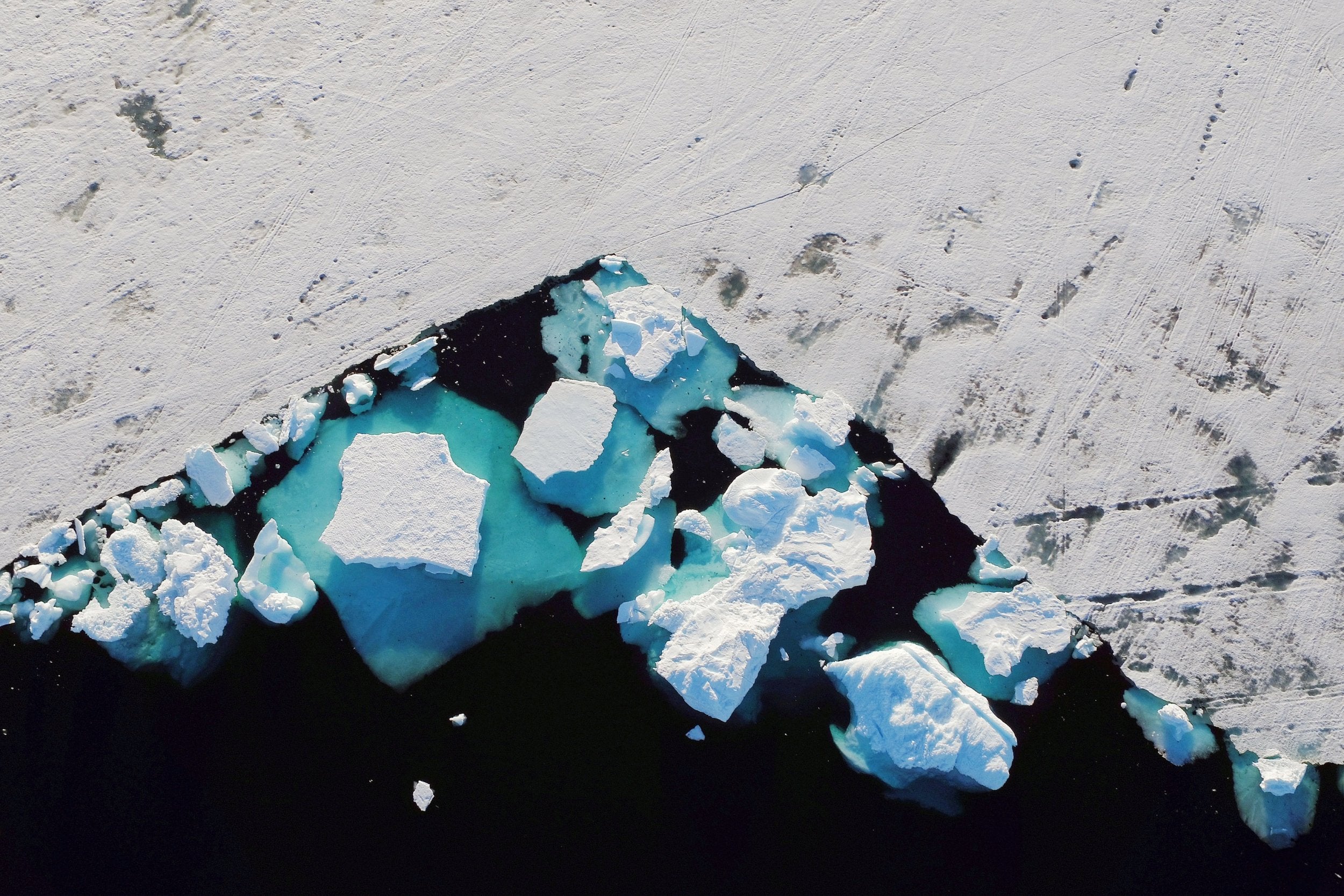Greenland's ice melting four times faster than in 2003, new study suggests
'It's too late for there to be no effect'

Your support helps us to tell the story
From reproductive rights to climate change to Big Tech, The Independent is on the ground when the story is developing. Whether it's investigating the financials of Elon Musk's pro-Trump PAC or producing our latest documentary, 'The A Word', which shines a light on the American women fighting for reproductive rights, we know how important it is to parse out the facts from the messaging.
At such a critical moment in US history, we need reporters on the ground. Your donation allows us to keep sending journalists to speak to both sides of the story.
The Independent is trusted by Americans across the entire political spectrum. And unlike many other quality news outlets, we choose not to lock Americans out of our reporting and analysis with paywalls. We believe quality journalism should be available to everyone, paid for by those who can afford it.
Your support makes all the difference.Greenland‘s ice is melting far faster than initially thought and may have reached a “tipping point”, with the rate of ice loss now four times quicker than it was in 2003, a new study suggests.
Scientists researching rises in global sea levels examined the country’s southeast and northwest regions and found that the largest amount of ice loss was sustained away from Greenland’s glaciers.
“Whatever this was, it couldn’t be explained by glaciers, because there aren’t many there,” said Michael Bevis, the study’s lead author.
“It had to be the surface mass – the ice was melting inland from the coastline. It’s because the atmosphere is, at its baseline, warmer,” Mr Bevis added.
“What’s happening is sea surface temperature in the tropics is going up; shallow water gets warmer and the air gets warmer.”
The team’s study suggests that an increasing amount of water will flow from Greenland into the ocean during the summer months, further contributing to the rising sea levels.
“We knew we had one big problem with increasing rates of ice discharge by some large outlet glaciers,” said Mr Bevis.
“But now we recognise a second serious problem: increasingly, large amounts of ice mass are going to leave as meltwater, as rivers that flow into the sea.”
He added that the research could have “serious implications” for coastal US cities, including New York and Miami.
The team’s findings, published in the journal Proceedings of the National Academy of Sciences, finds that southwest Greenland could become a major contributor to future sea level rises.
Scientists used data from Nasa and Germany’s Gravity Recovery and Climate Experiment (Grace) and from GPS stations around Greenland’s coast to measure the changes in ice mass.
Before the new study, researchers understood Greenland to be one of the Earth’s major contributors to sea level rise – mostly because of its glaciers.
But Mr Bevis said the new findings show that scientists need to be watching the island’s snowpack and ice fields closely.
“The only thing we can do is adapt and mitigate further global warming – it’s too late for there to be no effect,” Mr Bevis said.
“This is going to cause additional sea level rise. We are watching the ice sheet hit a tipping point.”
Additional reporting by agencies
Join our commenting forum
Join thought-provoking conversations, follow other Independent readers and see their replies
Comments